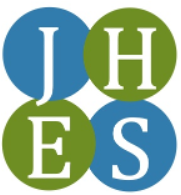ABSTRACT
Using Froma Walsh’s Family Resilience Framework, this study explored the experiences of overseas Filipino workers’ (OFWs) families as narrated by adolescent children of migrant parents. Ten (10) Filipino college-level older adolescents (five were female) served as participants in an in-depth interview. Their narratives explored key family resilience processes using a Deductive Qualitative Analysis using various domains of family resilience (i.e., family belief system, communication processes, and organizational patterns). The study found that: (1) The family adjusts belief systems to accommodate unsettling realities of international labor migration; (2) Roles change in the family to compensate for responsibilities fulfilled by the parent before leaving for another country; and (3) Communication processes were strained, but family members serve as moderators to ease tensions and maintain a pre-migration relationship. This study concluded that the family resilience framework is a robust lens through which migrant families’ experiences can be understood. Families generally exert effort to maintain homeostasis and cope with migration’s psychological and social costs. A resilience-focused model for addressing psychosocial needs is proposed. Processes more apparent to the Filipino family and opportunities for future research are also discussed.
ABOUT THIS ARTICLE
Authors and Affiliations
Nephtaly Joel B. Botor
Department of Human and Family Development Studies, University of the Philippines Los Baños, College 4031, Laguna, Philippines
*correspondence: nbbotor@up.edu.ph
| Received | Accepted | Published |
| 17 January 2023 | 17 April 2023 | 19 May 2023 |
Cite this article
Botor, N. J. B. (2023). Family Resilience in the Context of Migration: Exploring the Lived Experience of Filipino Migrants’ School-Going Older Adolescent Children. Journal of Human Ecology and Sustainability, 1(1), 3. https://doi.org/10.56237/jhes22009
Rights and permissions
This is an open-access article distributed under the terms and conditions of the Creative Commons Attribution (CC BY) license (https://creativecommons.org/licenses/by-nc-nd/4.0/), which permits unrestricted use, distribution, and reproduction in any medium, provided you give appropriate credit to the original author(s) and the source, provide a link to the Creative Commons license, and indicate if changes were made.
